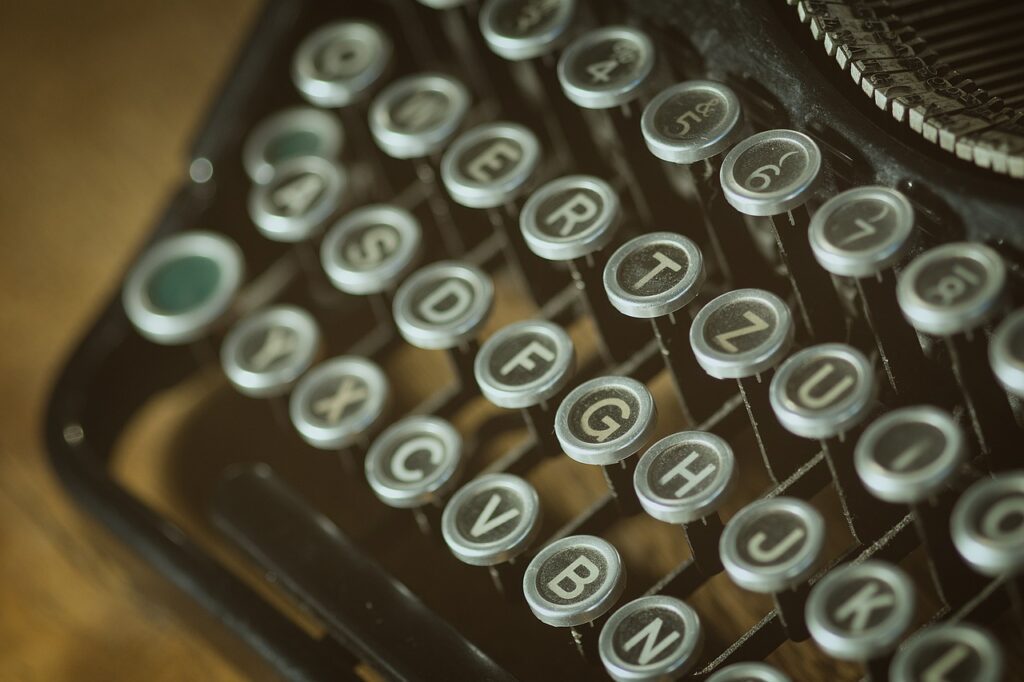Why You Need to Write Your First Book (Even If It’s Bad)
When I was around 16, I got the idea into my head that I could write my first book. After all, I’d been writing tons of short stories. No one was telling me no or to be more realistic (although in hindsight, that was a product of neglect rather than of being encouraged to find my talents).
At the beginning, I leaned on the medium that had become so comfortable to me over years of journaling — a simple notebook and pen. I’d cart the notebook with me to school, pull it out in every class, and pretend I was taking notes on the torturously slow teacher tangents. (*Note* Not all classes were dull, but I had learned early to have something to do as a general rule.)
About halfway through the book, though, I was itching to have the book feel more like…well, a book. At the time, even though it was the ’90s and home computers weren’t all that unusual, my family didn’t have one. So, I did the only thing a poor, budding writer could do — I lugged my mother’s old Smith Corona typewriter to my room, threaded in a sheet of crisp, blank paper, and started typing out the manuscript. By the time school ended for the summer, I’d prepared everything I’d written out initially by hand.

An exhilarating creative experience
So, there I was. Summer. Rural environment with nothing else to do aside from my job babysitting the neighbor’s boys. I seized the opportunity handed to me by the free days.
In a frenzy, I typed for hours a day. The clickity-clack of the keys punctuated Bach’s Brandenburg concertos and Brahms’ Symphony #4 in E Minor, which I played on old LPs.
And in only a few weeks, I threaded the last page through the typewriter.
To say those weeks were glorious is an understatement. I’ve talked before about how it was one of the best experiences I’ve ever had, teaching me what it meant to feel free in the writing craft.
But writing my first book did more than just offer a good time emotionally. It allowed me to understand, for the first time, that I was capable of producing full-length work. Yes, the book was horrible, an exercise in pantsing. But I got to see what the process of putting the manuscript together was like. Being able to hold the finished book in my hands made me confident that I was a real writer. I suddenly knew that, even though writing a book always would be an enormous undertaking, I had the persistence and patience to see it through. I’ve seen creating novels or book-length non-fiction as completely conquerable ever since and don’t get lost in the intimidation of a blank page.
A first book is not beyond you (really)
This demonstrates a powerful reason for writing your first novel: Even though the book might be a bit of a dumpster fire and never be published because you don’t completely know what you’re doing yet, executing from start to finish solidifies the idea that the task isn’t beyond you. Taking action gives you verifiable evidence of your potential, and when you have verifiable evidence of your potential, you’re far less likely to quit. You’ll see the next book you want to write as more feasible. The more you do this, the more your skills will improve and the higher your likelihood of actually having readers positively respond. But your first book is what starts the cascade that brings you full commitment to and expertise in the profession.
Are you ready to jump in?
So, if the thought of writing a book makes you want to hurl into a bucket a little even as it excites you, just jump in. It doesn’t have to be bestseller-ready. You don’t need a ton of spiffy tools to do the job, either — remember, all I had was a typewriter and some Brahms. You just need self-given permission to try and see what happens. Give that gift to yourself and claim the confidence that will fall into your lap from between your pages, because it will serve you for the rest of your career.